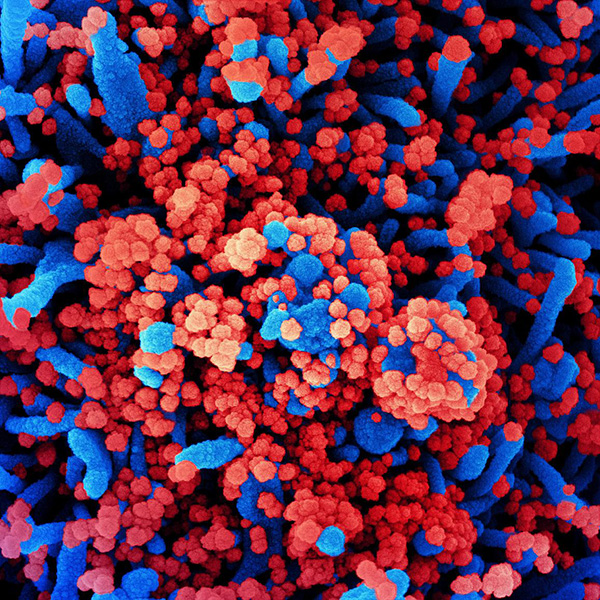Experimental COVID-19 vaccine protects upper and lower airways in nonhuman primates
Two doses of an experimental vaccine to prevent coronavirus disease 2019 (COVID-19) induced robust immune responses and rapidly controlled the coronavirus in the upper and lower airways of rhesus macaques exposed to SARS-CoV-2, report scientists from the National Institute of Allergy and Infectious Diseases (NIAID), part of the National Institutes of Health. SARS-CoV-2 is the virus that causes COVID-19.
The candidate vaccine, mRNA-1273, was co-developed by scientists at the NIAID Vaccine Research Center and at Moderna, Inc., Cambridge, Massachusetts. The animal study results published online today in the New England Journal of Medicine complement recently reported interim results from an NIAID-sponsored Phase 1 clinical trial of mRNA-1273. The candidate mRNA-1273 vaccine is manufactured by Moderna.
In this study, three groups of eight rhesus macaques received two injections of 10 or 100 micrograms (µg) of mRNA-1273 or a placebo. Injections were spaced 28 days apart. Vaccinated macaques produced high levels of neutralizing antibodies directed at the surface spike protein used by SARS-CoV-2 to attach to and enter cells. Notably, say the investigators, animals receiving the 10-µg or 100-µg dose vaccine candidate produced neutralizing antibodies in the blood at levels well above those found in people who recovered from COVID-19.

Colorized scanning electron micrograph of a cell (blue) heavily infected with SARS-CoV-2 virus particles (red), isolated from a patient sample.
This page was last updated on Friday, January 21, 2022